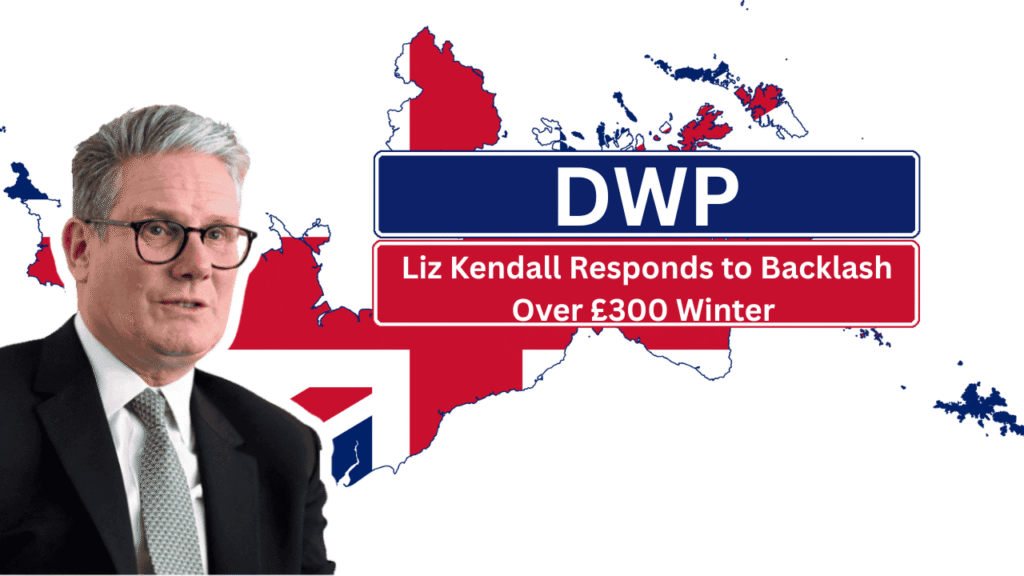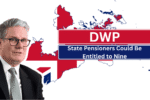In a significant development, Liz Kendall, the Secretary of State for Work and Pensions, has publicly addressed the government’s controversial decision to cut the £300 Winter Fuel Payment for millions of pensioners. This comes amid growing political and public backlash, with mounting pressure on Prime Minister Keir Starmer’s administration to reconsider the policy.
Background: The Controversial Cut
In July 2024, Chancellor Rachel Reeves announced a policy shift that transformed the Winter Fuel Payment from a universal benefit to a means-tested one. This change restricted the payment to pensioners receiving income-related benefits, effectively removing eligibility for approximately 10 million individuals. The decision aimed to address a £22 billion budget shortfall inherited from the previous Conservative government.
The policy change sparked widespread criticism, with opponents arguing that it disproportionately affected vulnerable pensioners. Critics labeled the move as “Labour’s poll tax,” referencing the unpopular tax policy from the 1990s. The backlash was particularly intense in regions like Wales and the so-called “Red Wall” constituencies, traditional Labour strongholds.
Liz Kendall’s Response
After a period of silence, Liz Kendall broke her silence on the issue, acknowledging the concerns raised by constituents and party members. While she did not commit to a full reversal of the policy, Kendall indicated that the Department for Work and Pensions (DWP) is actively reviewing the situation. She emphasized the importance of supporting those most in need while maintaining fiscal responsibility.
“We understand the concerns raised by many regarding the changes to the Winter Fuel Payment,” Kendall stated. “Our priority is to ensure that support is targeted effectively to assist those who need it most, especially during the colder months.”
Political Repercussions
The policy has had significant political ramifications for the Labour Party. In the May 2025 local elections, Labour suffered notable losses, including a key by-election defeat in Runcorn & Helsby to Reform UK. Analysts attribute these setbacks, in part, to voter dissatisfaction over the Winter Fuel Payment cuts.
Internal dissent within the Labour Party has also grown. Several MPs have voiced their opposition to the policy, urging the leadership to reconsider. Welsh First Minister Eluned Morgan described the cut as the top voter concern in Wales, highlighting the policy’s unpopularity in devolved regions.
Potential Policy Adjustments
In response to the mounting criticism, Downing Street is reportedly exploring options to mitigate the policy’s impact. One proposal under consideration is raising the current £11,500 income threshold for eligibility, which could restore the payment to a broader group of pensioners. Other suggestions include implementing a tapering system to gradually reduce payments based on income levels.
Prime Minister Keir Starmer has defended the original decision as necessary for economic stability but has not ruled out adjustments. The government is expected to announce any potential changes in the upcoming spending review scheduled for June 11.
Public Opinion and Legal Challenges
Public opinion on the policy remains divided. A YouGov poll conducted in May 2025 found that 47% of Britons supported the cut, while 39% opposed it. However, opposition was notably higher among older demographics, with 62% of individuals aged 65 and over expressing disapproval.
Legal challenges have also emerged. In October 2024, a pensioner couple in Scotland received permission to pursue legal action against the government, alleging that the policy change lacked proper consultation and an equality impact assessment. Additionally, the trade union Unite has initiated a judicial review, arguing that the government failed to adequately assess the policy’s potential consequences.
Looking Ahead
As the government grapples with the fallout from the Winter Fuel Payment cuts, all eyes are on the upcoming spending review. Stakeholders, including pensioners, advocacy groups, and political figures, await potential policy adjustments that could alleviate the burden on affected individuals.




